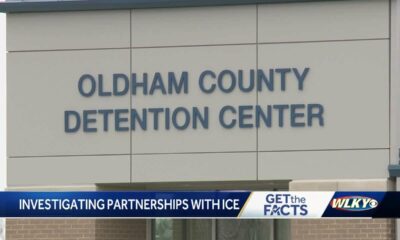(The Center Square) − A $4 billion clean energy project in Louisiana — touted as the largest of its kind in North America — could face major financial headwinds if Congress ever repeals key provisions of the Inflation Reduction Act, according to documents from one of the project’s lead developers.
CF Industries, the world’s largest producer of ammonia, has staked its future on a low-carbon transition — anchored in part by the development of green and blue ammonia production facilities at its Donaldsonville and Blue Point complexes in Louisiana. Together, the projects represent one of the largest investments in carbon capture and clean hydrogen in the country.
At the heart of that strategy is Section 45Q, a federal tax credit that provides up to $85 per metric ton of CO₂ permanently stored through carbon capture and sequestration.
CF has already entered into a landmark agreement with ExxonMobil to permanently store up to 2 million metric tons of CO₂ annually from its Donaldsonville operations, starting in 2025. That alone could translate into $170 million per year in tax credits—provided the current IRA-backed rules remain intact.
But that is not a safe assumption.
“The new administration has indicated that they’re not the biggest fans of green energy tax credits under the Inflation Reduction Act,” said Shawn Daray, a New Orleans tax attorney, during a February hearing before the Clean Hydrogen Task Force.
Section 45V relates to clean hydrogen production, another pillar of CF’s multi-billion-dollar expansion.
In its 2024 annual report, CF Industries warned investors that “changes to the IRA may impact our ability to receive anticipated tax credits for our low-carbon ammonia projects, which, in turn, could negatively affect the profitability of these projects.”
That warning resonates beyond the company’s bottom line. The Louisiana sites at Donaldsonville and the proposed Blue Point complex in Ascension Parish are projected to generate more than 1,200 construction jobs and over 100 permanent positions, according to Louisiana Economic Development records.
“These are the kinds of well-paying, future-forward jobs the IRA was designed to bring to places like Louisiana,” Mark Roberts, an advisor with EcoPolicy Advisors, told The Center Square. “Why the state’s own congressional delegation is working to repeal those benefits is baffling.”
More than $2.5 billion in direct IRA-related investments have been announced across the state since 2022, according to Roberts, potentially supporting thousands of jobs.
The threat to clean hydrogen isn’t limited to ammonia. This week Plug Power’s new hydrogen liquefaction plant in St. Gabriel began operations. The facility, operated by the Hidrogenii JV, can liquefy up to 15 tons of hydrogen daily — about 5,475 tons annually — produced by Olin. Plug Power distributes the hydrogen across the country using a trailer network and its newly introduced spot pricing model.
The St. Gabriel facility pushes Plug’s total U.S. liquefied hydrogen production to 40 tons per day, including sites in Georgia and Tennessee.
The company has said the IRA’s clean hydrogen production credit — Section 45V, which can provide up to $3 per kilogram of clean hydrogen — is key to its long-term strategy. But Plug has also acknowledged in recent investor filings that uncertainty around implementation and potential political shifts could affect how, and whether, they receive those benefits.
“A prolonged U.S. government shutdown could cause uncertainty or delay… which could impact the timing of any benefits we anticipate receiving under the IRA,” the company warned in its 2023 annual report. “Several of these credits… have been subject to debate, and divergent views on potential implementation… some of which could be materially adverse to the Company.”













































